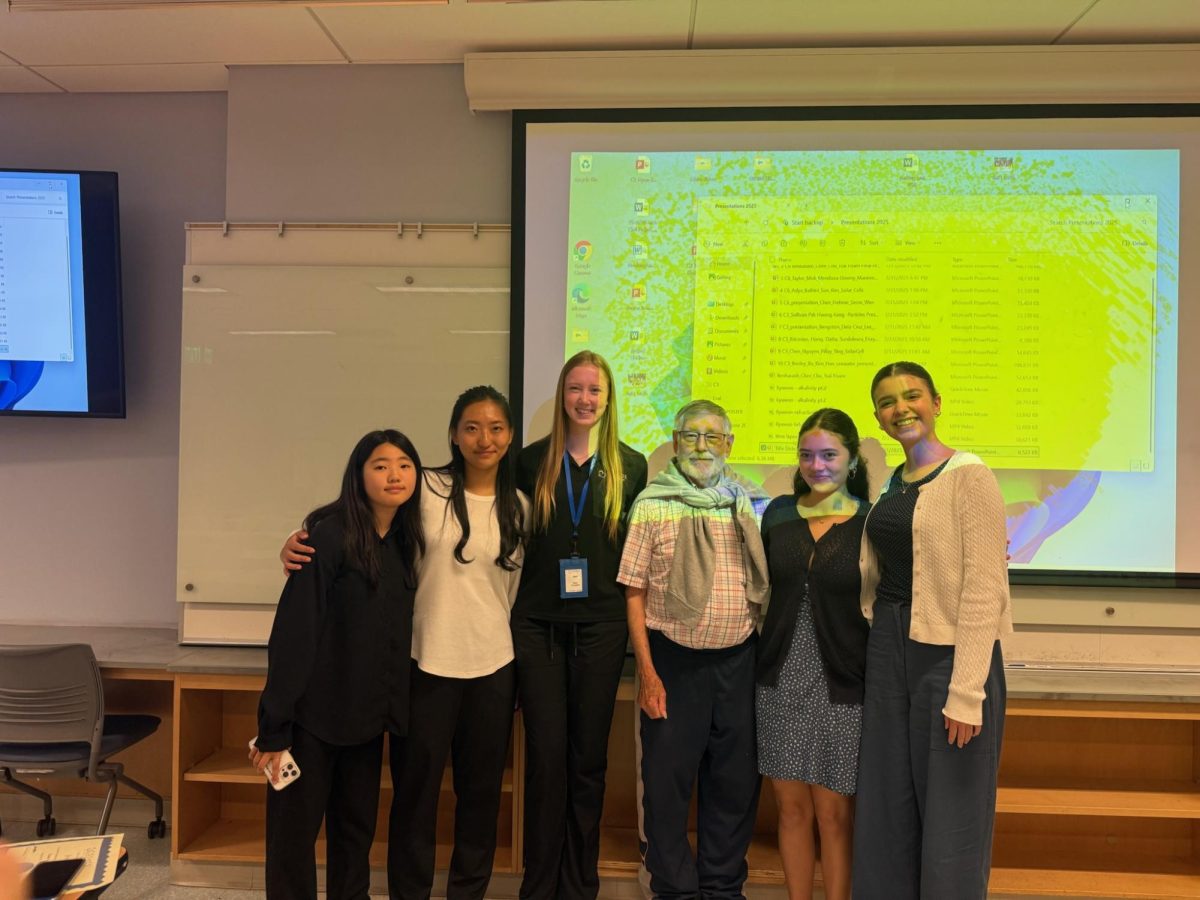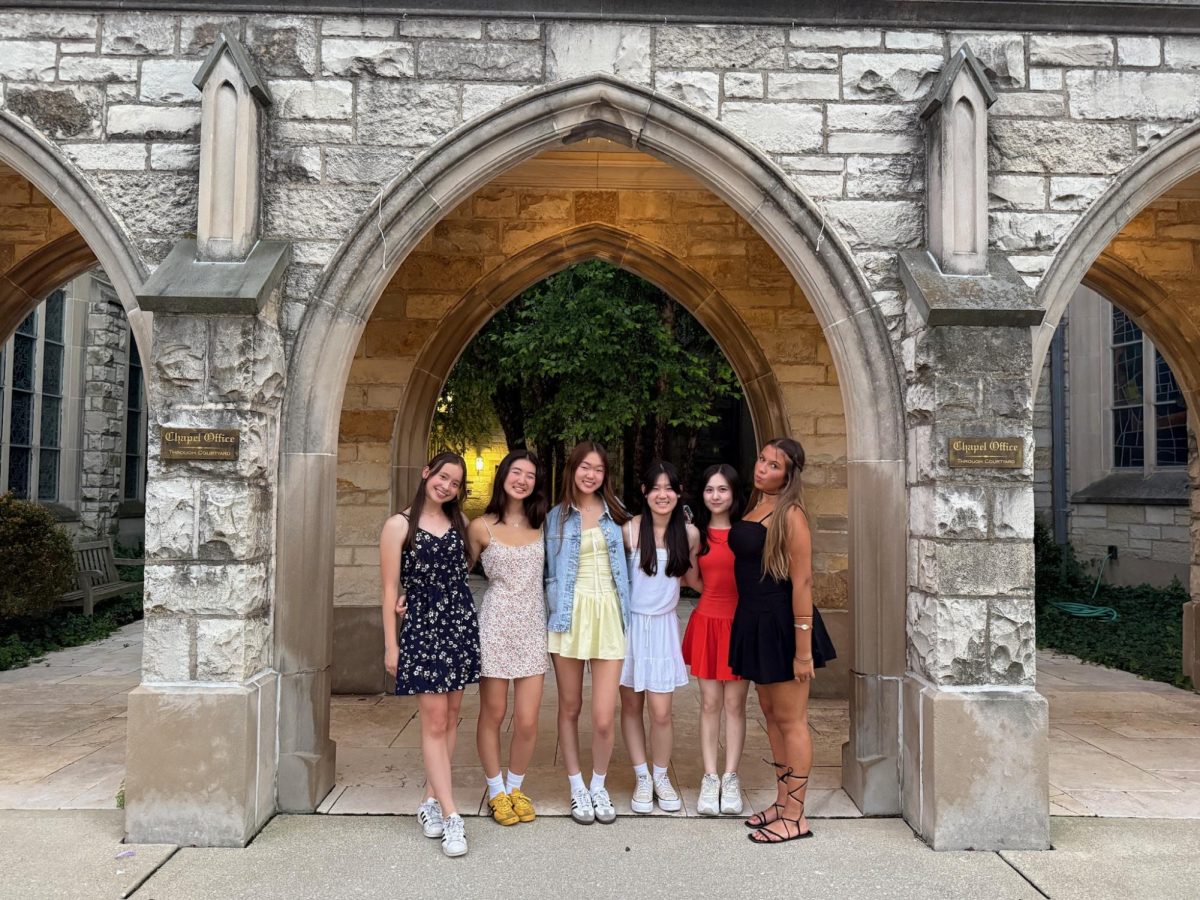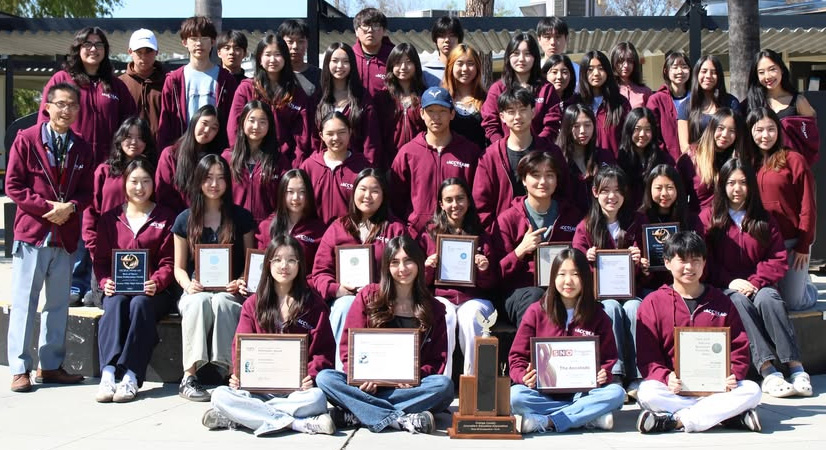In my sophomore year, I got approval from the Associated Student Body [ASB] to create my own club, Distributive Education Clubs of America [DECA].
Although I was already a member of the Future Business Leaders of America club on campus since my freshman year, I felt our campus needed something else to help students learn what it means to be financially literate.
I have always had an interest in business because of my father’s role in creating his own company, Hong-Ik Insurance Agency, which offers customers various pricing for home, auto and business insurance. Since doing so decades ago, he has been able to expand his firm to four branches in four cities statewide, including Los Angeles and San Jose.
But it was during the dinner I had with my family at my house on March 17, 2018, when I realized something big — something that would change the course of my life.
My sister had decided that she would be attending USC in the fall semester.
Learning that my parents would have to pay roughly over $50,000 annually for the cost of a USC education, I was flabbergasted by this absurd amount. Although they weren’t going to take out any loans for my sister, I knew that they had to sacrifice financially to cover her yearly tuition fees.
I figured that to survive in this world, I would have to become financially smarter and figure out several sources to earn an income to cover for my cost of college tuition — a noble sacrifice so my parents can save their money for other, more worthwhile endeavors.
After hours upon hours of searching online, I came to the conclusion that I would start my journey as a business tycoon on Investopedia, a stock simulator that emulates stocks in real-time. Everything about the simulator is real other than the money.
I soon learned about national competitions being held on Investopedia, so I decided to participate in them. Investing several weeks on Advanced Micro Devices, Tesla and other tech companies, I was awarded a certificate for placing eighth in the nationwide Youth Investors of America Stocks Club contest, which I have proudly put down on my college resume.
I am currently competing in the summer contest in which I hope to place first and thereby win not only another certificate, but also an unspecified amount of a gift card and a trophy.
Based on those experiences, I decided to form DECA at Sunny Hills to expand the business scene.
For much of the school year, my vice president, Rachel Lee, and I taught our members how to strive for financial success, such as explaining how the stock market works and how savings accounts work.
For example, during one lunchtime gathering, the two of us started the meeting by answering any general questions about the stock market or stocks in general. Here’s an example of one particular exchange I had with a club member.
DECA club member: “Could you explain where to look at to see which stocks are worth buying and which are not?”
Me: “For starters, there is the S&P 500 index, which shows the stock performance of top companies including Amazon and Microsoft.”
DECA club member: “But wouldn’t investing in those major companies cost a lot of money since their stock prices are so high? What should students like us invest in?
Me: “When I first started trading stocks, I used a method called day trading, which you guys should use as well. Day trading is the process of buying and then selling the stock on the same day. This is usually done with stocks that have prices that fluctuate often. This is a simple, yet effective way to make money because in the worst-case scenario, you won’t be losing thousands of dollars because of the low prices of the stocks.”
I then proceeded to introduce the club members to Investopedia. I showed them how to register and join contests so that they, too, could also experience the freedom of being an investor but with no risks.
In the next meeting, I decided that having a discussion about savings accounts would be helpful to my members. But to my surprise, many were unaware of their purpose — they just knew that these were used to put money into a bank.
I was able to explain that savings accounts are mainly used for long-term goals or emergencies.
With the spring semester over, several students will have a lot more free time than usual. To those people, I suggest that they start getting involved with financial literacy as well.
Start off small, like investing through a simulator like me or simply just keep track of your expenses.
Now I’m not saying that everyone needs to be as passionate about financial literacy as I am.
But they should start now; it’s not too late.
If things go back to normal in the fall when the 2020-2021 school year starts, I would highly encourage everyone to come by Room 34 during lunch on Thursdays to learn some more about financial literacy and success.














